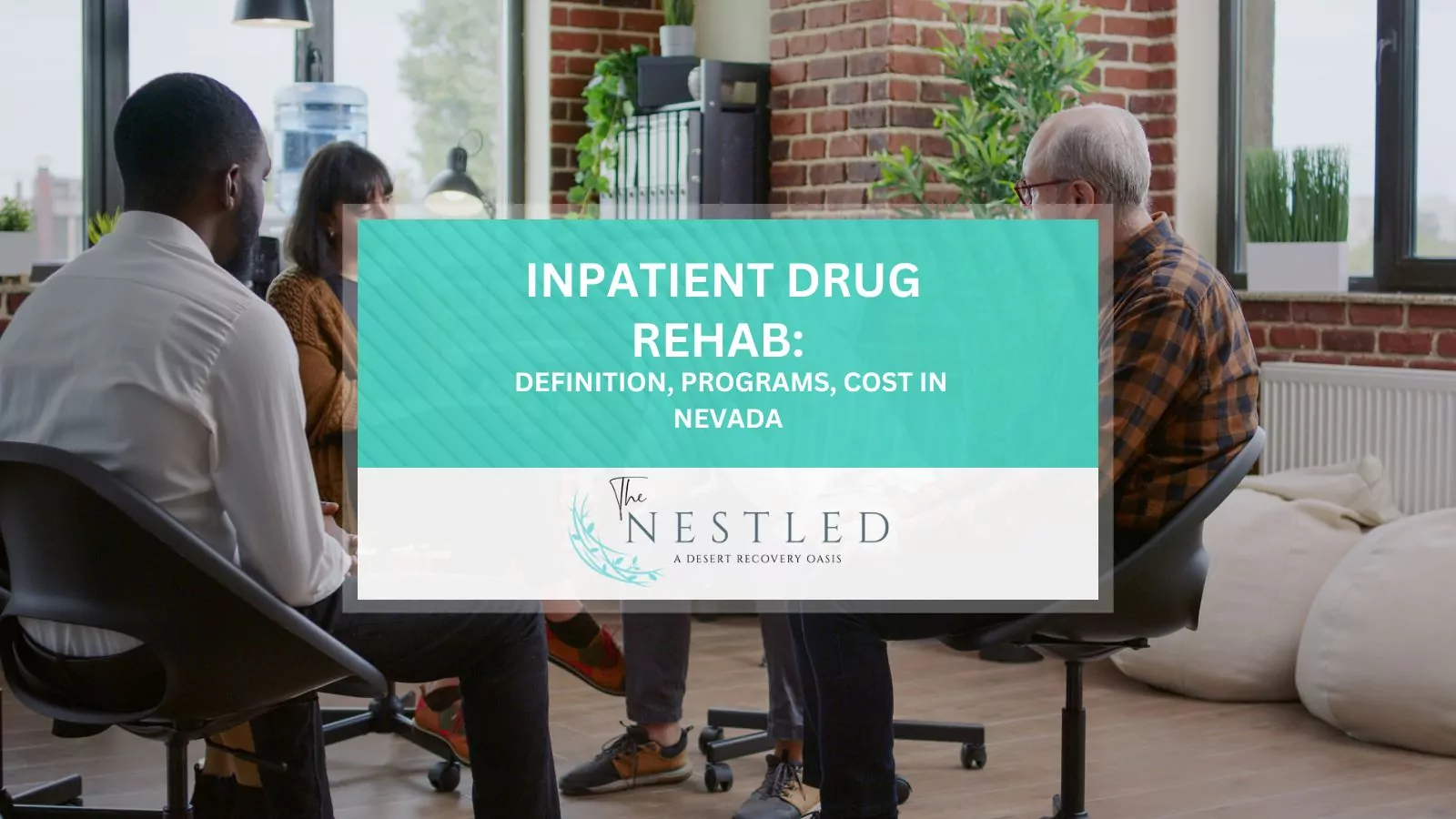Understanding the Relevance of Dependency Therapy in inpatient Drug Rehabilitation Services
The importance of addiction treatment in inpatient medicine rehab solutions can not be overemphasized, as these programs give an important framework for people browsing the intricacies of healing. Rolling Hills Recovery Center. By providing customized therapy plans and the adaptability to maintain day-to-day duties, inpatient services provide to the special needs of each individual. The combination of therapy, treatment, and household involvement plays a critical role in enhancing assistance systems. Nevertheless, the question remains: just how do these aspects collectively add to sustained healing and a meeting life beyond addiction? Discovering this more exposes essential understandings right into effective recovery approaches
Advantages of inpatient Rehabilitation
inpatient rehab offers a number of distinct benefits for people seeking recovery from material use conditions. One of the main benefits is the versatility it gives, allowing patients to preserve their everyday responsibilities, such as job, education, and family members responsibilities. This adaptability can enhance inspiration and motivate a smoother shift back into day-to-day life.

Furthermore, inpatient rehabilitation commonly has a reduced price contrasted to inpatient facilities, making it an extra available option for many individuals. Clients can obtain important healing services without the financial problem of a property program.
Individualized Therapy Strategies

Producing a customized treatment strategy involves a detailed assessment, which enables healthcare experts to establish strategies that straighten with the person's lifestyle and preferences. This personalized technique improves engagement and inspiration, as customers are most likely to stay dedicated to a program that reverberates with their particular conditions.
Furthermore, customized treatment plans can incorporate numerous restorative techniques, support systems, and aftercare options to make sure an alternative approach to healing. By identifying that no two people experience dependency similarly, these strategies promote a sense of ownership and accountability in the recuperation process. Eventually, customized therapy intends not only boost the likelihood of effective end results but also encourage people to reclaim their lives from compound usage disorders, leading the way for long-lasting recuperation and health.
Function of Treatment and Counseling
Therapy and therapy play a critical role in inpatient medicine rehab services, functioning as fundamental elements of the healing procedure. These treatments offer individuals with necessary assistance and coping approaches required to navigate the intricacies of dependency. Via various therapeutic methods, such as cognitive-behavioral treatment (CBT), inspirational speaking with, and mindfulness-based approaches, customers can explore the underlying issues adding to their compound usage.
Specific therapy sessions enable personalized interest, enabling clients to resolve particular obstacles in a confidential and risk-free setting. Here, clients create insight into their habits, causes, and psychological states, fostering self-awareness and promoting much healthier decision-making. Team counseling, on the other hand, supplies the chance for peer support, where people can share experiences, gain viewpoint, and build a sense of neighborhood.
Moreover, therapy and counseling furnish people with practical tools to handle food cravings, create strength, and enhance communication abilities. By dealing with both the psychological and mental elements of addiction, these services assist in an alternative technique to healing, eventually boosting the probability of long-term sobriety. In essence, reliable treatment and therapy develop the bedrock of inpatient medication rehab, empowering customers to reclaim their lives.
Family Members Involvement in Recuperation
Family involvement in healing is a crucial component that substantially boosts the efficiency of inpatient medicine rehabilitation services. Engaging family members in the therapeutic procedure cultivates a helpful environment that can help in damaging the cycle of dependency (Rolling Hills Recovery Center). Households offer emotional assistance, functional support, and accountability, every one of which are crucial in the recuperation journey
Including relative right into treatment permits open interaction, which can address underlying concerns that contribute to dependency. Family treatment sessions can help to fix relationships stressed by drug abuse, assisting in healthier characteristics and reducing the threat of relapse. These sessions urge relative to reveal their concerns and feelings, advertising understanding and empathy.
Enlightening families regarding dependency and recovery furnishes them with the devices essential to support their enjoyed ones effectively. This understanding can resolve stigma and foster a sense of unity, enhancing the concept that recovery is a shared journey. Eventually, the incorporation of family in the inpatient rehabilitation process not only benefits the person in recuperation yet also enhances domestic bonds, adding to a more alternative and lasting strategy to conquering addiction
Long-Term Success Strategies
Achieving long-term success in recuperation from dependency calls for a thorough strategy that expands past the preliminary treatment phase. visit the website The structure of long-term recuperation exists in the advancement of robust coping techniques and a helpful atmosphere that encourages continual development.
One critical facet of this technique is the establishment of a structured aftercare strategy. This plan should consist of routine follow-up sessions with a counselor, participation in assistance teams, and ongoing assessments of progression. These aspects not just supply responsibility but additionally promote a sense of neighborhood among people in healing.
Additionally, growing healthy partnerships is necessary. Building links with supportive relative and friends can produce a favorable social media network, which is important for psychological stability. Participating in activities that advertise physical and mental well-being, such as exercise, mindfulness techniques, or going after leisure activities, even more boosts durability versus relapse.
Education and learning concerning addiction and healing can equip people to make informed options and identify triggers in their environment. By integrating these lasting success strategies into their lives, people can considerably boost their opportunities of maintaining sobriety and accomplishing a meeting life post-rehabilitation.
Conclusion
Finally, inpatient medication rehabilitation solutions play an important function in dependency therapy by supplying versatility and individualized care tailored to individual needs. The combination of treatment and therapy promotes crucial coping strategies while community support minimizes feelings of isolation. Additionally, involving member of the family enhances relationships and supports a holistic recovery approach. Ultimately, the mix of these components adds considerably to long-lasting success, equipping people to get click reference over dependency and go after satisfying lives.
